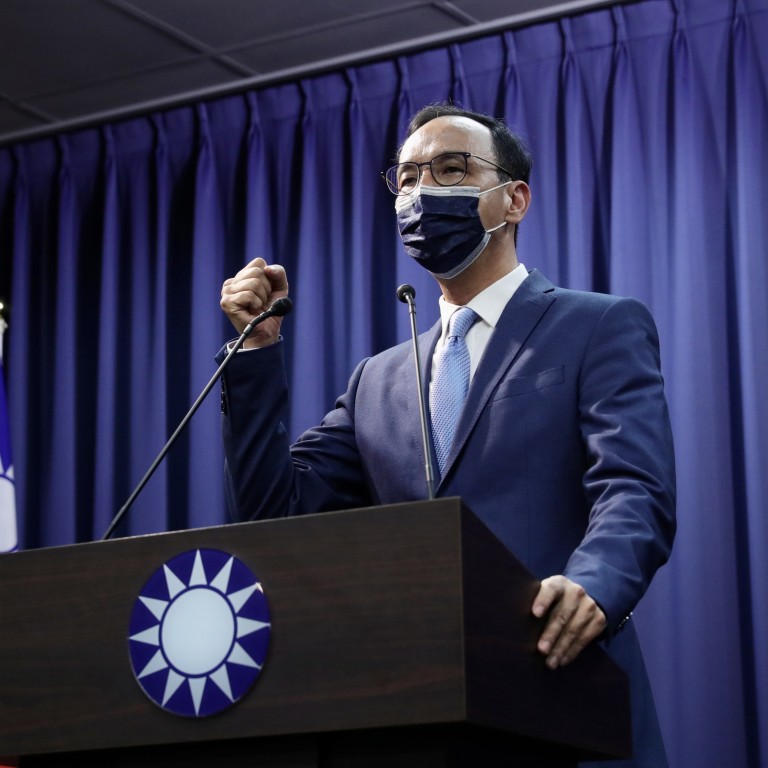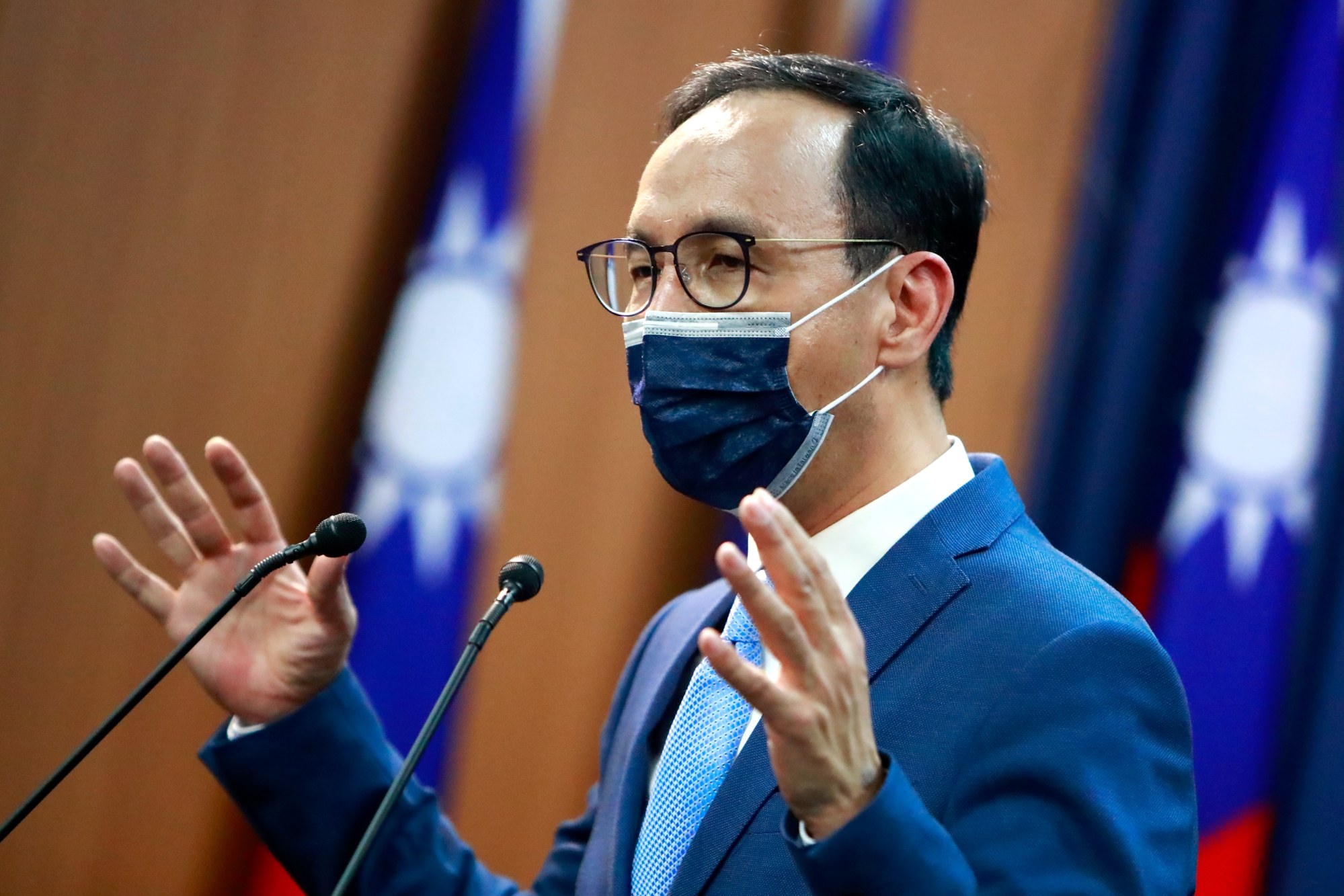
Kuomintang chairman, in Washington, pitches his party as stabilising presence between Beijing and Taipei
- Eric Chu’s visit to the US was timed to coincide with the recent reopening of the KMT’s representative office after a 13-year absence
- ‘In power or in opposition, we are the party [that is] pro-US, close to the US, pro-democracy and pro-peace,’ former vice-premier says
Taiwan’s main opposition party is a “pro-US” stabilising presence amid heightened cross-strait tensions between Beijing and Taipei, its chairman said on Monday during a visit to Washington as the group reopened its representative office here after 13 years.
“We are mislabelled by some people or some media saying we are [a] pro-China party. It’s totally wrong,” Chu said in a speech at the Brookings Institution. “We are [a] pro-US party, forever. Since we inaugurated the party … in power or in opposition, we are the party [that is] pro-US, close to the US, pro-democracy and pro-peace.”

On Monday, Chu sought to position the KMT as providing a stabilising presence amid the tensions.
“During this pivotal and crucial era, what is our decision and choice?” Chu asked. “If we want to be the flashpoint, some tragedy may happen. If we want to be the stabiliser of the world, I think it’s good news for the world.”
The self-ruled island operates Taipei Economic and Cultural Representative Offices from the US and elsewhere. Meanwhile, Beijing has continued to pressure countries to cut official diplomatic ties with Taiwan.
The KMT delegation led by Chu will hold closed-door meetings with officials in US President Joe Biden’s administration as well as members of Congress and think tanks.
Beijing urges US to cut military ties with Taiwan after Austin’s remarks
While stressing a desire for greater engagement with the US, Chu on Monday emphasised a long-time KMT stance of expressing hope for a resumption of cross-strait dialogue. Beijing suspended the talks after Tsai’s election in 2016.
That “principled engagement”, Chu said, amounts to “threat reduction and crisis management” with Beijing. He identified self-defence as “the number one” priority for achieving peace and stability.
“A strong defence and liberal coalition are required [and are] indispensable for this region’s security,” he said.

